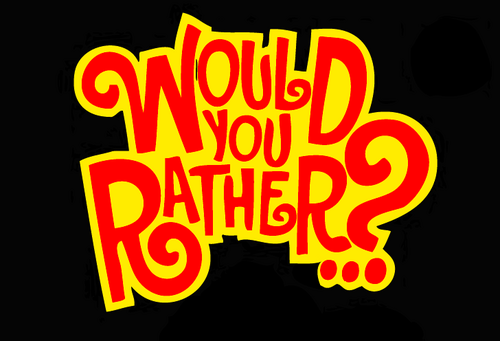
- Giống nhau:
Would rather & would prefer: có nghĩa là thích A hơn (B)
Would like : diễn đạt một cách lịch sự 1 lời mời hoặc ý muốn của mình.
- Khác nhau:
WOULD RATHER
Khi ta dùng “would rather” thì động từ theo sau phải là động từ nguyên mẫu không “to” (bare infinitive):
1. Affirmative:
S + would rather + V(bare inf) + O.
Ex: I would rather study English.
2. Negative:
S + would rather + not + V(bare inf) + O.
Ex: He would rather not study English.
3. Interrogative:
Would + S + rather + V(bare inf) + O?
Ex: Would you rather study German or Chinese?
WOULD PREFER
Khi ta dùng “would prefer” ta chia ra hai tình huống:
- Tình huống thứ nhất nếu trong câu chỉ có một sự kiện hoặc một hành động thì động từ chính theo sau “would prefer” phải là động từ nguyên mẫu có “to”.
- Tình huống thứ hai nếu trong câu có hai sự kiện hoặc hai hành động thì động từ chính theo sau “would prefer” phải là V-ing (gerund).
1. Affirmative:
S + would prefer + to + V(bare inf) + O.
Ex: I would prefer to study English.
S + would prefer + V-ing + O + to + V-ing + O.
Ex: She would prefer learning English to watching TV.
2. Negative:
S + would prefer + not + to + V(bare inf) + O.
Ex: I would prefer not to go out without aim.
S + would prefer + not + V-ing + O + to + V-ing + O.
Ex: She would prefer not cooking dinner to watching TV.
3. Interrogative:
Would (Do/Does) + S + prefer + to + V(bare inf) + O + or + O?
Ex: Would you prefer to take a video or a photography class?
Would (Do/ Does) + S + prefer + V-ing + O + to + V-ing + O?
Ex: Would you prefer playing chess to watching TV?
WOULD LIKE
Would like = would care /love/ hate/ prefer + to + verb khi diễn đạt điều kiện cho một hành động cụ thể ở tương lai.
Ex: Would you like/ care to come with me? I'd love to
- Would like/ would care for/ would enjoy + Verb-ing khi diễn đạt khẩu vị, ý thích nói chung của chủ ngữ.




 Tiếng Anh mỗi ngày
Tiếng Anh mỗi ngày

 Cải thiện kỹ năng nghe (Listening)
Cải thiện kỹ năng nghe (Listening)
Chia sẻ suy nghĩ hay Viết câu hỏi của bạn về bài viết